Today Current Affairs: 21st August 2021 for UPSC IAS exams, State PSC exams, SSC CGL, State SSC, RRB, Railways, Banking Exam & IBPS, etc
Table of Contents
G-sec Acquisition Programme 2.0:
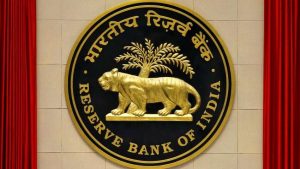
The Reserve Bank of India (RBI) has announced that it will conduct an open market purchase of government securities of Rs 25,000 crore under the G-sec Acquisition Programme (G-SAP 2.0).
- Earlier, under G-SAP 1.0, the first purchase of government securities for an aggregate amount of Rs. 25,000 crore was made.
Government Securities Acquisition Programme (G-SAP):
- The G-Sec Acquisition Programme (G-SAP) is basically an unconditional and a structured Open Market Operation (OMO), of a much larger scale and size.
- RBI has called the G-SAP as an OMO with a ‘distinct character’.
- The word ‘unconditional’ here connotes that RBI has committed upfront that it will buy G-Secs irrespective of the market sentiment.
- Objective: To achieve a stable and orderly evolution of the yield curve along with management of liquidity in the economy.
- Significance: The government will mainly benefit from the G-SAP.
- By purchasing G-secs, the RBI infuses money supply into the economy which inturn keeps the yield down and lower the borrowing cost of the Government.
- The government of India, with its massive borrowing programme (for example, National infrastructure pipeline project), can now breathe a sigh of relief as long-term borrowing costs come down.
- Issues: Critics of the G-SAP say that the rupee might get adversely affected.
- They are of the view that the G-SAP announcement has already led to depreciation of the rupee (a fall in the value of currency).
- So, critics are pointing to the fact that there is a trade-off between a tumbling rupee and lower borrowing costs/low yields.
Further, too much liquidity will drive up inflation.
Open Market Operations:
- Open Market Operations (OMO) is one of the quantitative (to regulate or control the total volume of money) monetary policy tools which is employed by the central bank of a country to control the money supply in the economy.
- OMOs are conducted by the RBI by way of sale or purchase of government securities (g-secs) to adjust money supply conditions.
- The central bank sells g-secs to remove liquidity from the system and buys back g-secs to infuse liquidity into the system.
- These operations are often conducted on a day-to-day basis in a manner that balances inflation while helping banks continue to lend.
- RBI carries out the OMO through commercial banks and does not directly deal with the public.
- The RBI uses OMO along with other monetary policy tools such as repo rate, cash reserve ratio and statutory liquidity ratio to adjust the quantum and price of money in the system.
Government Securities:
- A G-Sec is a tradable instrument issued by the Central Government or the State Governments.
- It acknowledges the Government’s debt obligation. Such securities are short term (usually called treasury bills, with original maturities of less than one year- presently issued in three tenors, namely, 91 day, 182 day and 364 day) or long term (usually called Government bonds or dated securities with original maturity of one year or more).
- In India, the Central Government issues both treasury bills and bonds or dated securities while the State Governments issue only bonds or dated securities, which are called the State Development Loans (SDLs).
PRASHAD Scheme:
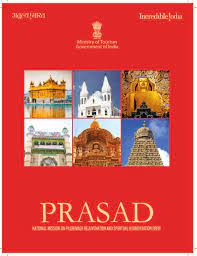
The Prime Minister has inaugurated various projects in Somnath, Gujarat under PRASHAD (Pilgrimage Rejuvenation and Spiritual, Heritage Augmentation Drive) scheme at a total cost of over Rs 47 crore.
- The Somnath Exhibition Centre, developed on the premises of ‘Tourist Facilitation Centre’, displays the exhibits from dismantled parts of the old Somnath temple and its sculptures having Nagara style Temple Architecture of old Somnath.
- This temple is also referred to as Ahilyabai Temple since it was built by queen Ahilyabai of Indore when she found that the old temple was in ruins.
- Shree Parvati Temple is proposed to be constructed with a total outlay of Rs 30 crore. This will include temple construction in Sompura Salats Style, development of Garbha Griha and Nritya Mandap.
PRASHAD Scheme:
- The ‘National Mission on Pilgrimage Rejuvenation and Spiritual Augmentation Drive (PRASAD)’ was launched by the Ministry of Tourism in the year 2014-15 with the objective of holistic development of identified pilgrimage destinations.
- The name of the scheme was changed from PRASAD to “National Mission on Pilgrimage Rejuvenation and Spiritual Heritage Augmentation Drive (PRASHAD)” in October 2017.
- Implementing Agency: The projects identified under this scheme shall be implemented through the identified agencies by the respective State/ Union Territory Government.
- Objective:
- Rejuvenation and spiritual augmentation of important national/ global pilgrimage and heritage sites.
- Follow community-based development and create awareness among the local communities.
- Integrated tourism development of heritage city, local arts, culture, handicrafts, cuisine, etc., to generate livelihood.
- Strengthen the mechanism for bridging the infrastructural gaps.
- Funding:
- Under it, the Ministry of Tourism provides Central Financial Assistance (CFA) to State Governments for promoting tourism at identified destinations.
- For components within public funding under this scheme, the Central Government will provide a 100% fund.
- For improved sustainability of the project, it also seeks to involve Public Private Partnership (PPP) and Corporate Social Responsibility (CSR) as well.
Fifth Edition Of The National Bio Entrepreneurship Competition (NBEC):
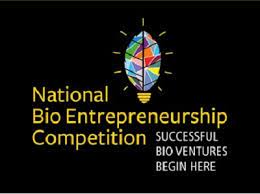
The Department of Biotechnology has launched the fifth edition of the National Bio Entrepreneurship Competition (NBEC).
- NBEC is conducted as a part of the Biotechnology Industry Research Assistance Council (BIRAC) Regional Entrepreneurship Centre, established at Centre for Cellular and Molecular Platforms (C-CAMP) in partnership with BIRAC.
- BIRAC is a Public Sector Enterprise, set up by the Department of Biotechnology (DBT).
About NBEC:
- It is India’s largest and most prestigious national competition for bio-entrepreneurs.
- First Launched in 2017, NBEC has emerged as a flagship platform for bio-entrepreneurs and innovators in India to showcase their deep science driven ideas and has created a great impact.
- It is held annually to identify and nurture deep science-driven business ideas in the life sciences domain that have the potential to break new ground in addressing societal challenges.
- Prize: It gives an unprecedented sum of Rs 8.5 crore in cash prizes and investment opportunities this year for winners.
Investment Partners: - Over 30 industry and investment partners have come forward to encourage and support bio-entrepreneurship in India through this competition.
- NBEC in four years has created a repository of over 1,000 carefully vetted and expert hand-picked business ideas spanning all sub-domains of life Sciences.
- Special focus was given on healthcare, agriculture and environment, with a special focus on emerging areas like digital health, maternal & child health, antimicrobial resistance, water and sanitation, green chemistry, and personal care.
- This has built a steady pipeline of innovative technologies with demonstrated commercial viability
US-India Bilateral Free Trade Agreement:
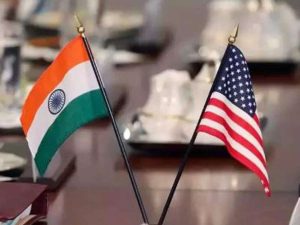
Recent comment by Minister of Commerce and Industry about the prospects of US-India bilateral free trade agreement being very bleak now
Other key highlights of the speech
- This is the first time the position of the new administration has been made official by both the government
- Despite this, both the countries have resolved to step up effort to resolve trade issues between them
- Some of the trade issues between the two countries include: non-tariff barriers, entering mutual recognition agreements, aligning of quality international standards
- The minister also hoped a bilateral FTA would be signed with Bangladesh soon
- He also expressed confidence that India would soon be signing ‘Early harvest deal’ with Australia soon
- Similar treaty is expected to signed between UK, UAE and other Gulf Cooperation Council (GCC) in due course of time
Draft Electricity (Late Payment Surcharge) Amendment Rules, 2021:

The Ministry of Power has proposed to amend rules for facilitating electricity producers to sell power to a third party, which it said can pare fixed costs and cut retail tariff for end consumers.
- The ministry circulated the draft Electricity (Late Payment Surcharge) Amendment Rules, 2021, seeking comments for the same.
- The power generating companies are being given an option to sell power to third parties and recover costs. To this extent, the fixed cost burden of the distribution licensee shall be reduced, the ministry stated.
- If a distribution licensee has any payment, including late payment surcharge, outstanding after the expiry of seven months from the due date as prescribed in the PPA (power purchase agreement), the generating company may sell power to any consumer or any other licensee or power exchanges, for the period of such default.
- The claim would be retained on payment of fixed charges or capacity charges from the distribution licensee, after giving a notice of at least 15 days to the distribution licensee.
- The claim, if any, shall be reconciled on an annual basis and shall be limited to only under-recovery of the fixed charges or capacity charges.
Re-Imagining Urban Rivers:

National Mission for Clean Ganga (NMCG) and the National Institute for Urban Affairs (NIUA) had organised ‘Re-Imagining Urban Rivers’, a national level thesis competition in September 2020, under a joint project that the two organizations are implementing to promulgate river- sensitive development in our cities.
- This is a first of its kind initiative to engage young minds to research and envisage solutions for urban river issues.
- The purpose of this sponsored thesis competition is to tap into the intellect and creativity of students to arrive at innovative solutions for re-imagining the outlook and management of rivers that flow through cities and their associated features.
- The competition had three themes – Re-imagining water bodies and/or wetlands, developing eco-friendly riverfront projects and Promoting River tourism.
- Students from leading institutes across the country presented their thesis in the grand finale of the competition on 19th Aug 2021 at Indian Habitat Centre, New Delhi.
- Second edition of the Sponsored Thesis Project Competition was launched recently.
- This year’s themes will be ‘Reducing River pollution’, ‘Rejuvenating water bodies’, ‘Creating a vibrant river zone’, ‘Generating river-related economy’ and ‘Engaging citizens in river management activities.’
Defence India Startup Challenge (DISC) 5.0:
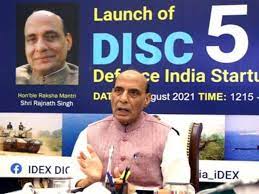
Raksha Mantri Shri Rajnath Singh launched Defence India Startup Challenge (DISC) 5.0 under Innovations for Defence Excellence – Defence Innovation Organisation (iDEX-DIO) on August 19, 2021.
- Thirty five Problem Statements – 13 from the Services and 22 from Defence Public Sector Undertakings (DPSUs) – were unveiled under DISC 5.0.
- These are in areas such as Situational awareness, Augmented Reality, Artificial Intelligence, Aircraft-trainer, Non-lethal devices, 5G network, Under-water domain awareness, Drone SWARMS and Data Capturing.
- iDEX will support five times more start-ups over the next five years as the aim is to accelerate progress, reduce costs and complete procurement in a time bound manner.
- The launch of DISC 5.0 by iDEX-DIO comes three years after the launch of DISC 1.0.
- The iDEX initiative was launched by Prime Minister Shri Narendra Modi in April 2018 to achieve self-reliance and foster innovation & technology development in defence and aerospace sectors.
Hazara Ethnic Group:

Taliban militants in Afghanistan have vandalised and blown up a statue of Shiite militia leader Abdul Ali Mazari in the province of Bamiyan, the unofficial capital of the Hazara ethnic group. Mazari, widely known as a champion of the Hazaras, was executed by the Taliban in 1995.
- The Hazaras are an ethnic and religious minority group largely found in the rugged and mountainous central Afghan region of Hazarajat.
- The Hazaras are one of Afghanistan’s largest ethnic minorities, accounting for about 10-12 per cent of the country’s 38-million strong population.
- They are targetted by the Taliban because they are primarily Shia Muslims, as opposed to most Afghans who follow the Sunni branch of Islam. Their distinct Asiatic features and use of a Persian dialect called Hazaragi also sets them apart from the rest of the country.
- They are believed to be descendants of the founder of the Mongol empire, Genghis Khan, and his army that overran the entire region during the 13th century.
- Around 1773, the mountainous region of Hazarajat in modern-day central Afghanistan was annexed and made a part of the territories of the Afghan Empire under Pashtun ruler Ahmad Shah Durrani.
- The Sunni Muslim majority under the Pashtun ruler resulted in marginilisation of the Shiite Hazara community, to the extent that in the 18th and 19th century, they were forced to leave fertile lowlands in central Afghanistan and make the arid mountainous landscape their new home.




